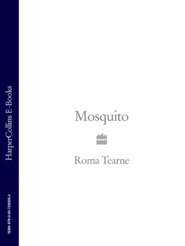По всем вопросам обращайтесь на: info@litportal.ru
(©) 2003-2024.
✖
Brixton Beach
Автор
Год написания книги
2018
Настройки чтения
Размер шрифта
Высота строк
Поля
‘I want you to understand,’ Bee was saying quietly, looking directly at her, searching her face. ‘People will think you’re only a child and they will hide things from you. Later they will tell you it was for your own good. But you won’t stay a child forever. And I don’t want you to misunderstand.’
Some of the shock in his voice was replaced with anger.
‘You must know the difference between hating one person and hating a whole race. Don’t make that mistake. The doctor was a man, a pariah man. Not even a dog can be that bad. Chance made him Singhalese, remember that, Alice. He would have been bad anyway’
They walked on silently. I have a dead sister, thought Alice, trying out the words in her mind. She shivered inwardly. Already she felt different.
‘Such a little life,’ Bee murmured.
They were walking along the same road that Alice had danced on just hours before. Now it had become a remote and distant place and everything had changed in a night. The day lay crushed before her. With a flash of insight she realised she was struggling with events beyond her control. She had become a girl with a dead sister. Nothing was certain any longer. They reached the beach. She could hear the sounds of children’s voices carried by the breeze towards her and she saw a few boys pulling a boat out of the water. They were the boys who lived in the little cluster of huts close to the railway line, children of fishermen. Squinting against the sun, Alice watched them silently. Sadness tugged at her, bringing with it a threat of tears. But the tears still would not come and the unmistakable feeling of aloneness made her feel she was no longer part of the beach or these children. Perhaps, she had never really belonged here, she thought in dismay. The sea breeze was making it difficult to breathe and there was a queasy, empty feeling in the pit of her stomach. She wished her old friend Janake would return. The dead sister hung as heavy as a Tamil thora chain around her neck. Other children had had dead relatives, but they had not willed them to be dead. Frowning suddenly, she wanted nothing more of it.
‘Alice,’ her grandfather was saying, ‘your father wants to take you to England. Did you know?’
Alice stared at him. Understanding knocked against her like a ball in a socket. She heard the words, curiously familiar and yet not believable.
‘You don’t get a passport unless you’re going to travel,’ she said slowly, remembering Esther.
‘Yes.’ Bee nodded, the tone of his voice confusing her. ‘That’s true, darling.’
He hesitated.
‘In England,’ he said, ‘you will be quite safe.’
She was silent, digesting this.
‘We cannot keep you safe here any longer,’ he continued. ‘You must go; the young have no future here. It is best, for a while, at least.’
He stopped walking and stared out to sea. She could not read the expression on his face. All she knew was that in the wide-open aspect of the beach he looked frail and very dear to her. I am. safe here with you, she wanted to cry, but the words seemed to lodge in her throat and the sea breeze whipped her breath away and lost them.
When they got back, after her father had phoned, Alice heard the facts, such as they were. By the time they filtered down to her they had become simpler, softer. A tale murmured in the shocked voice of her aunt May.
‘In England,’ May told her, ‘childbirth is safe. But in this country it depends on who you are and who your doctor is. Your dada is not a rich man. He could not pay for the private hospital’
May had been crying on and off ever since she had heard the news; her eyes were bloodshot and swollen. After school had finished she was going to Colombo to visit her sister. And sometime after that, Kamala told her granddaughter, there would be a very small funeral.
‘Can I come?’ Alice asked cautiously.
She was too afraid to voice what she was beginning to suspect; that she had willed this to happen.
‘No, you must stay here. Grandpa Bee is going to bring your mama back here to recover. She won’t be going to the funeral either. She’s too weak. You can stay and look after her.’
Alice said nothing. What would she say to her mother when she next saw her? Would her mother have bloodshot eyes, too? Guiltily she wondered how much Sita would guess of her part in the baby’s death.
‘Is she thin now?’ she asked in a small voice.
And only then did she remember her friend Jennifer.
‘Jennifer’s mother is having a baby too,’ she told Kamala in dismay. ‘She said they were going to have a boy. A Hindu astrologer told her mother that finally, after five girls, she would have a son.’
It was too late. Jennifer would tell everyone that Alice had wanted the baby to die and then everyone in the class would say she had made a curse. Perhaps, thought Alice in panic, she would be sent to the police.
‘Do I have to go to school on Monday?’ she asked, wanting to cry. ‘Can’t I stay here a bit longer?’
Yes, darling,’ her grandmother said, looking at her in a funny way.
Perhaps she too had guessed the terrible secret, thought Alice, really frightened now.
You’ll stay until after the funeral. Then you must go back to school. And if Jennifer asks you, simply say the baby died. There’s no shame in that, Alice. It wasn’t your poor mother’s fault.’
Stanley rang again.
‘You’ll have to be kind to your mother,’ he told Alice, as if even he had discovered her secret. Reluctantly she agreed, aware of Bee’s watchful eyes on her. Afterwards, without a word, Bee got the car out to drive May to the hospital. He would go with Stanley to the undertakers to organise the funeral. Kamala gave May a food parcel of rice and bitter gourd with chillies. The cook had baked it with fenugreek in the clay oven, knowing it was Sita’s favourite dish.
‘She’ll be hungry,’ Kamala whispered, ‘even though she won’t realise it.’
Kamala too sounded close to tears. She gave May a flask of coriander tea.
‘To dry the milk.’
Alice glanced at her.
‘She may have a fever.’
Kamala was speaking hurriedly, avoiding looking at May. Alice watched them from the corner of her eye, both fascinated and repelled by the whispering voices. Everyone was avoiding looking at each other, as if they feared something awful would show in their faces.
After they had gone the house fell silent. There was still no sign of Janake, as Alice wandered around aimlessly.
‘Why don’t you see if Esther is around?’ Kamala asked.
But Esther was nowhere in sight either and Kamala, busy getting the room ready for Sita, had no time to talk.
Alice looked around for something to do. On her grandmother’s instructions, she reluctantly decided to do a drawing for Sita. The thought of her mother’s return was beginning to curdle uneasily within her. She drew a picture of the view from Mount Lavinia Hill with its bougainvillea-covered houses, its coconut grove and its glimpse of the sea. After some deliberation she decided not to draw the ships that were so constantly present on the horizon. The ships that she had taken for granted all her life had, since this morning, taken on a new and more sinister meaning. So instead she drew the three rocks beside the hotel where she had often swum. She hoped it would bring back happy memories for her mother too.
The servant had taken a mattress out on to the verandah and was dusting it. Then she began to sweep Sita’s old room. Sita would sleep alone so she might rest properly. The servant took all the furniture outside and began to clean it.
‘Move away, Alice, baby,’ the servant said. ‘You’ll get covered in dust. Why don’t you lie down for a bit?’
Alice went into her room. She didn’t want to be called baby. She stared at the mosquito net hastily thrown aside earlier that morning. She had known this room all her life. It was as familiar as her own hand. The deer’s head that her great-grandfather had brought back as a trophy from England stared down at her. A bowler hat worn by one of her ancestors hung over its face, covering its sad, dead eyes. Alice shivered. The hat had been put there by Kamala years before when a much younger Alice had been frightened by its eyes. No one had ever bothered to remove it, and the deer now stared eternally into the dark interior of the hat. Sitting on the end of her bed, Alice glanced around the room. There was a faint smell of camphor and polish and washed cotton. The lump of clear green glass that she had found on the beach during her last visit stood on the window sill, exactly where she had left it. Everything was as before; only she, Alice Fonseka, had changed. Her guilt hung on an invisible hook in the thickening midday heat. Once, when she had been very small, a servant told her a story about a child who had done something bad. Afterwards, the servant told Alice, every time the child moved, every time she walked or sat down or played in the garden, the devil would walk behind her, dragging his chains. Recalling the story, Alice wondered if she too would be hearing chains soon? She listened, but nothing happened. Through the dazzling bright sea light far down below the cliff came the sound of a passing train. Its echo went on and on.
She stared blankly at the sea. There was no way of explaining her unhappiness to herself. On the beach another group of children jumped in and out of the waves. From this distance they looked like small birds darting about, waving their arms in the air, free. Janake was still nowhere in sight. She watched the boys for a moment longer, hearing their faint laughter. Until this moment childhood had held no threat for her. But as she stood watching the scene below, for the second time that day, the idea that things had in some irreversible way altered began to take shape in her mind. The sun reappeared with renewed force from behind a cloud. She longed to be down on the white sand, laughing at nothing and getting soaked. She longed to see Janake and have him tease her. Standing beside the open window, recalling her grandfather from earlier in the morning, she emulated what he had done moments before he had seen her. Raising her arms up, letting her body descend slowly to the ground, curiously, she tried to imagine how he must have felt. Such was her absorption that she did not hear the gate bang shut or the footsteps on the gravel. Esther’s face looking up at the window startled her.
‘What are you doing, Alice?’
‘Nothing,’ she said crossly, frowning, standing up. ‘What are you doing here?’
‘We heard the news,’ Esther said. She sounded shocked, unsure of herself. ‘Amma sent me to ask if you would like to come over to our house.’
Alice was puzzled. Esther sounded unusually friendly.








